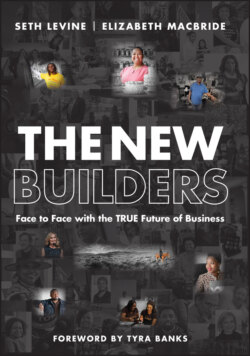Читать книгу The New Builders - Seth Levine - Страница 26
Can You Tell an Innovator When You See One?
ОглавлениеFred Sachs is an inveterate entrepreneur. He bought his first company, a Main Street enterprise in Alexandria, Virginia, called Smoot Lumber, in his late thirties, and started a second one, a commercial door and hardware company, in time to ride Washington, DC's building boom in the 1980s. He sold them both, the first in 1996 and the second in 2008. He then started his third and invested in his fourth venture. In the first, a farm he owns in rural Virginia, he's experimenting with new strains of organic wheat. The second is a Canadian‐based startup that is working on developing medical diagnostic devices.
He learns something every time around, he told us. At 76, he's every bit a New Builder – and one of his key qualities, which perhaps surprisingly seems to sharpen with age, is the ability to innovate. When Fred interviewed with the consulting firm McKinsey back in 1972, they asked whether he was more innovative or creative. Over the years, he's learned that being an entrepreneur requires both. “Sometimes you have to create a solution to a particular problem; and in other situations you have to innovate in order to get around a particular hurdle. And if you're not going to deal with the problem, you're going to be left behind. You have to continue to change.”
Many successful entrepreneurs are older, in their forties, fifties, and beyond – a fact that has been obscured by our obsession with technology entrepreneurship, where founders often skew younger (certainly our myth of the startup founder does). Paul Graham, an investor in entrepreneurs and a co‐founder of the famous Silicon Valley accelerator Y Combinator, once quipped that “the cutoff in investors' heads is 32… After 32, they start to be a little skeptical.”16
This certainly maps to how the media portrays startup founders, but a closer look tells a different story. The average age of entrepreneurs when they start their companies is 42, researchers at MIT and the US Census Bureau found. And, perhaps bucking the conventional wisdom of Silicon Valley, the average age of a technology founder is nearly the same: 40.17
Interestingly, the time we spent with New Builders suggests that entrepreneurs might actually get more innovative as they get older. Early successes free older entrepreneurs to play with ideas, and they often have extensive networks built up over time that they can leverage in new ventures. Innovation and entrepreneurship for many older entrepreneurs seem to become something of a habit.
After Fred Sachs sold his first two companies, he planned to spend time on his small farm in Eastern Virginia. But an entrepreneur's mind is hard to disengage, and before long he was producing organic flour from Virginia‐grown grains. First it was a hobby, but quickly his entrepreneurial juices began to flow. By 2018, Grapewood Farm was producing tons of flour, which it sold to regional bakers for upwards of $7.00 a pound, depending on the variety.iii
“I think we could probably do twice as much business as we're doing now, because it's unique and people are interested in eating healthy foods and buying local,” he said. Meanwhile, he's also working on and investing in his medical diagnostic device business.iv
